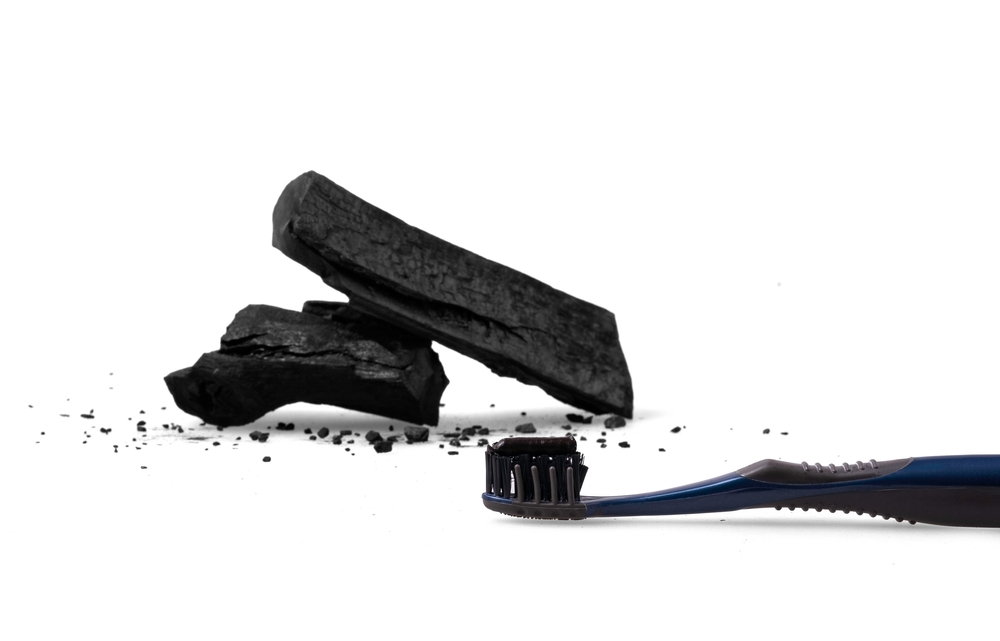
Blog Summary:
- Whitening toothpaste does work, but not all formulas are created equal, and some may do more harm than good.
- Traditional whitening agents like peroxide, microbeads, and blue covarine have been clinically shown to lift stains—but they’ve also been shown to increase enamel roughness over time, contributing to cavity development and tooth sensitivity.
- Charcoal toothpaste is trendy but risky: it’s abrasive, poorly studied, and not recommended by the ADA or most dentists.
- The best option? A gentle, microbiome-friendly whitening toothpaste with ingredients like hydrated silica, fluoride, nano-hydroxyapatite, and possibly niacinamide—for a smile that’s not just whiter, but healthier too.
Whitening toothpaste does work, and that’s not just a bunch of marketing mumbo jumbo. It’s a proven fact. But there’s a catch. We’ve got all the details you need to know below!
Does Whitening Toothpaste Work?
Yes. A 2019 study compared different whitening technologies, including hydrogen peroxide, blue covarine, and microbeads. So if you’re asking yourself questions like “Does whitening toothpaste work?” The answer is likely yes. But don’t rush off to the store just yet…
How Long Does Whitening Toothpaste Take to Work?
In the above-referenced study, blue covarine was shown to offer an instant optical effect, while peroxide and microbeads showed results after long-term (repeated) use.
Perhaps more importantly, though, the study also raised several concerns. Many of these toothpastes were shown to increase enamel surface roughness, a red flag for long-term oral health damage.
A 2022 meta-analysis confirmed these risks. Whitening toothpastes often decrease enamel microhardness and increase roughness, which weakens the teeth over time.
Not all whitening toothpastes work the same way as “regular” big-name whitening toothpastes used in the above studies, though. So let’s talk about natural alternatives.
Charcoal: Natural Whitening or Enemy of Enamel?
Charcoal toothpaste is often marketed as a “natural” whitening product and a far superior alternative to “regular” brand-name toothpastes. It seems plant-derived and trendy. And while it may be popular, that doesn’t make it safe and effective. In reality:
- Charcoal may absorb surface stains, but there’s little scientific evidence to support that claim.
- It’s extremely abrasive, which poses a risk of irreversible damage to enamel and gums.
- The ADA doesn’t recommend it for regular use.
In short, charcoal toothpaste is best left on the shelf.
Is Whitening Teeth Without Damage Possible?
I’ve now established that generally speaking, 1) whitening toothpaste is in fact effective, but that 2) it can also be extremely damaging, and that applies to both traditional and natural whitening toothpastes. How frustrating! So what are you supposed to do? And is whitening teeth without causing excessive damage even possible? The answer again is yes.
Simply put, you should look for a toothpaste that gently and naturally lifts surface stains while remineralizing and protecting enamel for a brightening effect. Last but not least, look for a toothpaste that was created to work with your natural microbiome.
Specifically, look for toothpastes with ingredients like:
- Hydrated silica
- Nano-hydroxyapatite
- Fluoride
Alongside ingredients like nano-hydroxyapatite and hydrated silica, you may notice niacinamide (a form of vitamin B3) listed in some natural whitening toothpastes. It’s well-known in skincare for brightening skin tone. But does niacinamide whitening toothpaste work? Early evidence is limited, and it’s really too soon to say definitively.
What we do know is that you skip traditional whitening toothpastes, which contain things like toxic microbeads, and natural whitening toothpastes that have potentially harsh or harmful substances like essential oils, peroxide, and activated charcoal.
If you remember only one thing from this post, it should be that the best toothpaste does more than just whiten; it gently whitens while also protecting, healing, and supporting whole-mouth health.
Get a Brighter Smile Without Compromises
Looking for a natural toothpaste that really works, while protecting your teeth in the process?
Try SuperMouth hydroxamin with fluoride toothpaste. Fluoride and nanohydroxyapatite help restore enamel naturally, which brings brightness back to the teeth. Meanwhile, hydrated silica gently and safely whitens surface stains.
Or, try a still-effective non-fluoride option for your little ones.

